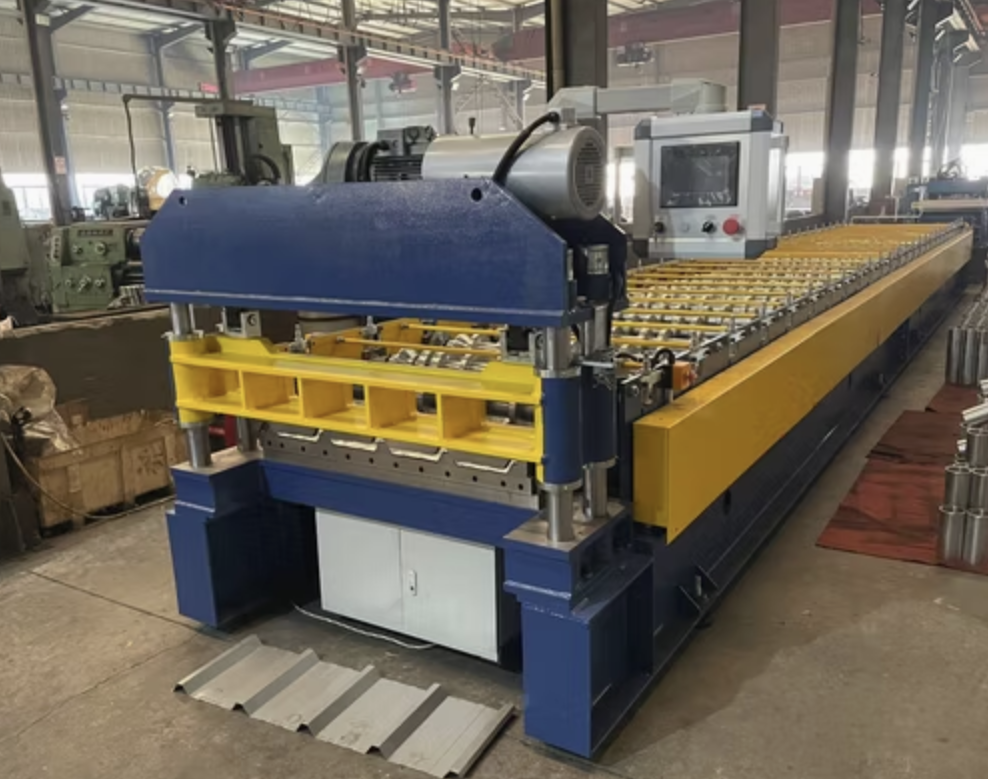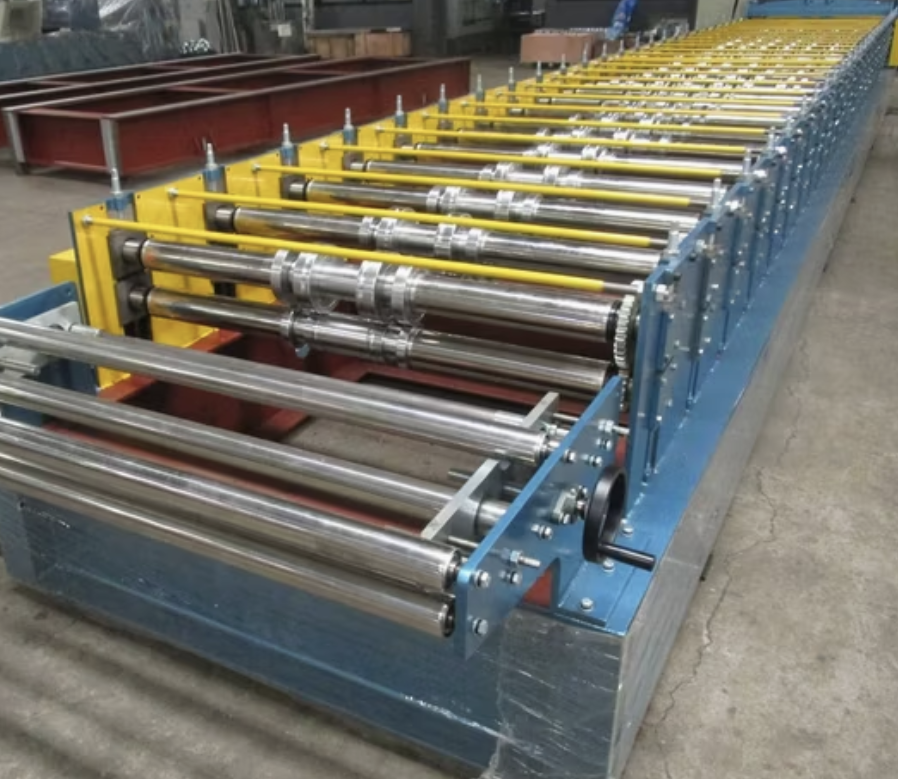To express an interest in this machine please submit the form below.

Not Sure What Machine You Need?
Select Your Profile, We'll Match It
Choose your desired profile drawing, and let Machine Matcher connect you with the best roll forming machine tailored to your needs.
Browse Profiles


A metal roof roll forming machine is an advanced industrial device designed to fabricate metal roofing panels through a continuous bending process. This machine processes flat metal sheets or coils into specific roofing profiles, popular for commercial, industrial, and residential roofing due to their durability, weather resistance, and aesthetic appeal. Roll forming ensures high precision and efficiency, making it ideal for mass production of metal roofing panels.
The metal roof roll forming machine is designed to streamline roofing panel production with precision. Starting with a coil of metal, the machine straightens, molds, and cuts the material into panels with a specific roofing profile. The machine operates continuously, delivering consistent quality and output speed suitable for industrial applications. Advanced PLC systems enable easy customization of panel lengths and quantities, meeting various client and project requirements efficiently.
In addition to the roll-forming unit, optional accessories can enhance functionality:
These machines are widely used in construction and manufacturing sectors:
A: These machines are designed for various metals, including galvanized steel, aluminum, copper, and color-coated steel, typically within a thickness range of 0.3 to 0.8 mm.
A: Some machines come with adjustable rollers, but for drastic profile changes, switching to another machine or installing an additional profile module may be required. Contact your machine manufacturer to understand compatible profiles and setup options.
A: Initial setup can take several hours or a full day depending on the profile complexity, but once set, the machine is highly efficient with minimal calibration needed for each production run.
A: Yes, many modern machines feature remote PLC systems that allow for off-site monitoring and adjustments, which can be very convenient for overseeing production.
A: Regular maintenance is essential. General maintenance, including lubrication and alignment checks, is recommended every few months. Full servicing and inspection should be done annually to ensure optimal performance.
A: Operators should follow all safety protocols, including using provided safety guards, wearing protective gear, and maintaining an emergency stop within reach. Regular safety checks and training are also recommended.
A: The production capacity depends on the model, speed, and profile complexity. Typical machines can produce 8-15 meters of roofing panels per minute, making them highly efficient for medium to large-scale production.
A: Yes, many metal roof roll forming machines are customizable and can be adjusted or manufactured to produce unique profiles. However, this may require custom-designed rollers or additional tooling.
A: Yes, some roll forming machines can integrate additional units such as punching, embossing, or notching, enhancing the panel’s features and customization options.
Copyright 2026 © Machine Matcher.